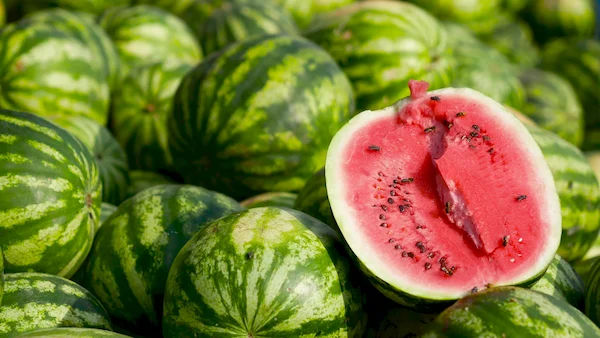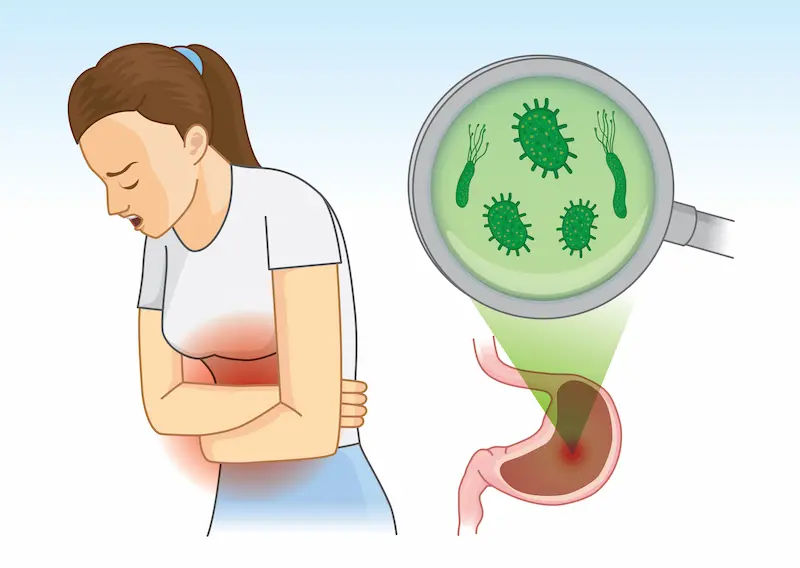A Complete Guide to Understanding and Managing Flatulence
Know about flatulence, what it is, causes, foods that cause gas, signs to see a doctor, how to manage it and treatment options for flatulence.

Written by Dr. Vasanthasree Nair
Reviewed by Dr. D Bhanu Prakash MBBS, AFIH, Advanced certificate in critical care medicine, Fellowship in critical care medicine
Last updated on 13th Jan, 2026

Let's be honest: everyone passes gas. Flatulence is a universal, yet often embarrassing, part of being human. While it's a natural byproduct of your digestive system working correctly, excessive gas can be uncomfortable and sometimes a sign of an underlying issue. This guide will demystify flatulence, exploring its causes, the foods that trigger it, and effective strategies for management. We'll separate myth from fact and provide you with practical advice to improve your digestive comfort and confidence.
What Exactly Is Flatulence?
Flatulence is the medical term for the accumulation of gas in the digestive system that is released through the anus. It's a normal physiological process. The average person passes gas between 13 and 21 times a day. This gas is composed primarily of odourless vapours like carbon dioxide, oxygen, nitrogen, hydrogen, and sometimes methane. The characteristic, and often unpleasant, smell comes from trace gases containing sulfur, produced when gut bacteria break down certain foods.
Consult a Gastroenterologist or Personalised Advice
The Two Main Causes of Intestinal Gas
Understanding where gas comes from is the first step to managing it. There are two primary sources.
1. Swallowed Air (Aerophagia)
We all swallow small amounts of air when we eat and drink. However, certain habits can significantly increase air intake, leading to more gas and burping. This excess air travels through the digestive tract and is eventually expelled as flatulence.
Common causes: Eating or drinking too quickly, talking while eating, drinking carbonated beverages, chewing gum, sucking on hard candy, smoking, and drinking through a straw.
A unique insight: Dentists note that poorly fitting dentures can also cause a person to swallow more air, which is a factor often overlooked in general discussions about gas.
2. Bacterial Fermentation in the Gut
This is the major contributor to flatulence. When food passes through the small intestine, not all components are fully digested and absorbed. These undigested carbohydrates and fibers then move into the large intestine, where trillions of harmless bacteria feast on them. This process of fermentation produces various gases, primarily hydrogen, carbon dioxide, and, in about one-third of people, methane.
Common Foods That Cause Gas (The Usual Suspects)
Certain foods are notorious for causing gas because they are high in specific compounds that our bodies struggle to digest fully. Identifying gassy foods is a key step toward management.
High-Fibre Foods: Beans, lentils, whole grains, and bran. Fibre is excellent for digestion, but can be a shock to the system if increased too quickly.
Certain Vegetables: Cruciferous vegetables like broccoli, cauliflower, cabbage, and Brussels sprouts contain raffinose, a complex sugar.
Certain Fruits: Apples, pears, peaches, and prunes contain soluble fibre and natural sugar alcohols like sorbitol.
Dairy Products: For those with lactose intolerance, consuming milk, cheese, or ice cream can lead to significant gas, bloating, and diarrhoea.
Sugar Substitutes: Sorbitol, mannitol, and xylitol found in sugar-free foods and gums are not fully digested.
Carbonated Drinks: Soda, beer, and sparkling water directly introduce carbon dioxide gas into your system.
When Should You Be Concerned? Signs to Watch For
While usually harmless, excessive flatulence can sometimes be a symptom of a digestive disorder. It's important to recognise when to reduce flatulence naturally and when to see a doctor. Consult a healthcare professional if your gas is accompanied by:
Persistent abdominal pain or cramping
Bloating that doesn't resolve
Changes in bowel habits (diarrhoea or constipation)
Blood in your stool
Unexplained weight loss
Nausea or vomiting
These could be signs of conditions like Irritable Bowel Syndrome (IBS), celiac disease, small intestinal bacterial overgrowth (SIBO), or food intolerances.
Effective Strategies to Reduce and Manage Gas
You don't have to live with uncomfortable bloating and gas. Here are proven methods for managing bloating and gas.
Dietary Adjustments and the Low FODMAP Approach
Keep a Food Diary: Track what you eat and your symptoms to identify your personal trigger foods.
Try a Low FODMAP Diet: FODMAPs (Fermentable Oligosaccharides, Disaccharides, Monosaccharides, and Polyols) are a group of short-chain carbohydrates that are poorly absorbed in the small intestine. A diet low in these compounds, often under the guidance of a dietitian, can dramatically reduce symptoms for many people with IBS.
Soak Your Beans: Soaking dried beans and discarding the water before cooking can leach out some of the gas-producing oligosaccharides.
Cook Your Vegetables: Cooking cruciferous vegetables can make them easier to digest than eating them raw.
Lifestyle and Behavioural Changes
The changes include:
Eat Slowly and Mindfully: Put your fork down between bites. Chewing thoroughly reduces swallowed air and gives your digestive system a head start.
Avoid Carbonated Drinks: Opt for water, still juice, or tea.
Get Moving: Regular physical activity helps stimulate the passage of gas through the digestive tract and can relieve bloating. A short walk after a meal can work wonders.
Don't Smoke: Smoking increases the amount of air you swallow.
Over-the-Counter Remedies and Treatments
If lifestyle changes aren't enough, several products may help prevent excessive gas.
Alpha-galactosidase (e.g., Beano): This enzyme supplement helps break down complex carbohydrates in beans and vegetables before they reach your gut bacteria.
Simethicone (e.g., Gas-X, Mylanta Gas): This agent helps combine small gas bubbles in the gut into larger bubbles, making them easier to pass. It's effective for relieving pressure and bloating but doesn't prevent gas formation.
Lactase Supplements (e.g., Lactaid): Essential for those with lactose intolerance, these tablets provide the enzyme needed to digest dairy products.
Probiotics: Supplements containing beneficial bacteria (like Bifidobacterium and Lactobacillus) may help restore a healthy balance in your gut microbiome, potentially reducing gas production over time.
Debunking Common Myths About Flatulence
Myth: Holding it in is harmful. While it can cause temporary discomfort and cramping, holding in gas is not medically dangerous. The gas will eventually be reabsorbed or released slowly.
Myth: Only "unhealthy" foods cause gas. As we've seen, many incredibly healthy, high-fibre foods are the main culprits.
Myth: More gas means your digestion is bad. Quite the opposite. Gas is often a sign that your healthy gut bacteria are well-fed and doing their job fermenting fibre.
The Social Etiquette of Flatulence
Let's address the elephant in the room. While natural, flatulence can be socially awkward. If you're in a situation where it's particularly problematic, excusing yourself is always a polite option. Remember, it's a normal bodily function that everyone experiences.
Conclusion
Flatulence, though a frequent source of jokes and embarrassment, is simply a sign of a functioning digestive system. By understanding its causes, from the air we swallow to the healthy bacteria in our gut. We can demystify the process and take proactive steps to manage it. The key is to listen to your body, identify your personal triggers through mindful eating and perhaps a food diary, and don't hesitate to employ dietary strategies or safe, over-the-counter remedies when needed. If your symptoms are severe or persistent, always consult a healthcare professional to rule out any underlying conditions.
Consult a Gastroenterologist or Personalised Advice
Consult a Gastroenterologist or Personalised Advice

Dr. Jatin Yegurla
Gastroenterology/gi Medicine Specialist
11 Years • MD (PGI), DM (AIIMS Delhi), FAGIE (AIIMS Delhi), ESEGH (UK), Gold Medalist
Hyderabad
Apollo Hospitals Jubilee Hills, Hyderabad
(650+ Patients)

Dr. Amit Pandita
Gastroenterology/gi Medicine Specialist
10 Years • MBBS. MD (INTERNAL MEDICINE) DrNB (GASTROENTEROLOGY AND HEPATOLOGY)
Delhi
Apollo Hospitals Indraprastha, Delhi

Dr Piyush Vishwakarma
Gastroenterology/gi Medicine Specialist
11 Years • MBBS, MD, DrNB,
Delhi
Apollo Hospitals Indraprastha, Delhi

Dr. Shivaraj Afzalpurkar
Gastroenterology/gi Medicine Specialist
13 Years • MBBS, MD General medicine (Gold medalist), DrNB (Gastroenterology), MNAMS
Bengaluru
Apollo Clinic, JP nagar, Bengaluru

Dr Abhishek Tiwari
Minimal Access/Surgical Gastroenterology
15 Years • MBBS, MS, Diabetic Foot Course (Pisa, Italy)
Delhi
Apollo Hospitals Indraprastha, Delhi




